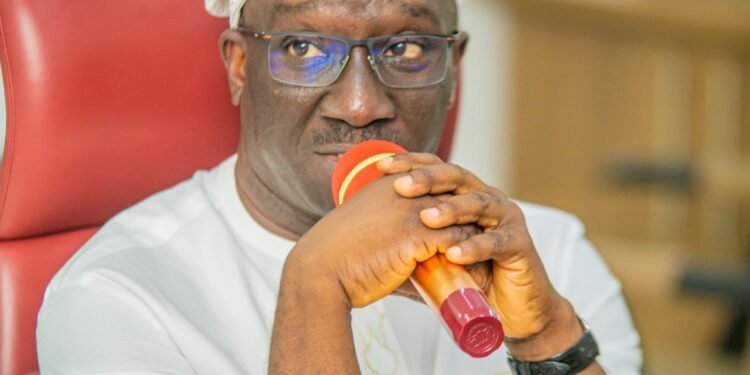Edo State Governor, Sen. Monday Okpebholo, has revealed plans to employ 3,000 teachers in the state.
This was contained in a statement released by the governor’s Chief Press Secretary, Fred Itua, on Wednesday.
Okpebholo supervised the handing out of letters of employment to 5,000 teachers in the state last Wednesday.
The teachers, who for years were on contract with a monthly stipend of ₦65,000 during the administration of Godwin Obaseki, were formally handed appointment letters during a ceremony held at Government House.
The governor emphasised the significance of the occasion and the government’s commitment to valuing its educators.
In appreciation of the governor’s kind gesture, the Edo State Chapter of the Nigerian Union of Teachers were at the government house on Tuesday, where it conferred a Lifetime Achievement Award on the governor by Edo in recognition of his exceptional reforms and commitment to repositioning the state’s education sector.
The award was presented by NUT State Chairman, Bernard Ajobiewe, in the company of the Acting Chairman of the Nigeria Labour Congress, Edo State chapter, Comrade Bernard Egwahide.
In return, the governor announced plans to recruit an additional 3,000 teachers to strengthen teaching capacity and improve learning outcomes across public schools in the state.
Okpebholo expressed deep appreciation to Edo teachers for their diligence and patriotism in shaping the future of the State.
He reaffirmed his administration’s commitment to education as the cornerstone of human development.
“Teachers remain a top priority in our development agenda and the state has finalised plans to employ 3000 additional teachers.
“We are building and renovating schools across Edo, and as infrastructure improves, so must manpower. Our goal is to ensure that no school lacks qualified teachers and that every child receives quality education in a conducive learning environment,” the governor said.
Okpebholo emphasised that his administration had put an end to the era of overcrowded classrooms and combined classes that once defined Edo’s public schools, noting that the new education reforms have already restored public confidence in the system.
He also reiterated that his government would not engage in political witch-hunts, but would allow performance and public perception to judge the actions of the previous administration.








